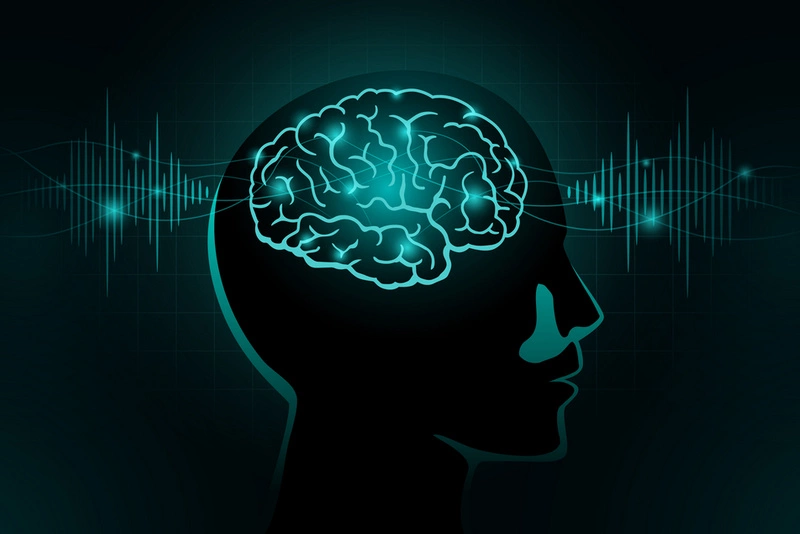This article will explore the potential of Transcranial Magnetic Stimulation (TMS) as a groundbreaking solution to combat insomnia and elevate sleep quality.
Do you struggle to sleep at night? Is falling asleep a chore, or do you wake up several times throughout the night and find yourself unable to fall back asleep? If so, you might be one of the 30% of Americans who struggle with insomnia. Thankfully, there are things you can do to try and manage symptoms.
Insomnia
Insomnia is the most common sleep disorder. It affects nearly 30% of Americans and can impair physical and cognitive function. Those who struggle with insomnia experience chronic sleep disturbances that happen at least three days per week for more than three months.
Insomnia can look like:
- An inability to fall asleep
- An inability to stay asleep, waking up several times throughout the night, and not being able to go back to bed
- Waking up too soon even though you are still tired and need sleep
- Not feeling rested when you wake
Without treatment, insomnia can lead to:
- Work absenteeism
- Poor job or academic performance
- Decreased quality of life
- Increased risk of anxiety or depression
- Higher rates of accidents
- Increased healthcare problems
Transcranial Magnetic Stimulation (TMS)
Transcranial magnetic stimulation is a non-invasive, safe, and effective form of treatment that uses magnetic pulses to reach deep regions of the brain and modify neural activity. During sessions, you’ll have a device placed on your head, and a professional will control the strength and location of the magnetic pulses that are sent to your brain.

These sessions are very short, with no anesthesia, no recovery time, and very few, if any, side effects. Changes can be experienced within the first several sessions.
TMS is highly effective in treating several conditions, such as depression, anxiety, ADHD, bipolar disorder, and insomnia.
Causes of insomnia
Insomnia has several potential causes. This looks different for everyone. For example:
- Women can experience postpartum insomnia because of anxiety, stress, or hormonal changes.
- Some people struggle with acute insomnia related to chronic stress at work or in their personal lives, such as challenging projects, financial difficulties, or sudden changes to relationships like divorce or the loss of a loved one.
- Insomnia can be related to depression. Insomnia and depression have overlapping neurobiological causes, which means the same parts of the brain have abnormalities and don’t function the way they should, which leads to problems regulating mood and sleep.
- Insomnia is also related to stress and anxiety, which can be acute stress or anxiety disorders.
In many cases, though, chronic insomnia that does not have a distinct cause, like sudden financial strain or the loss of a loved one, is often related to abnormalities in the brain. Even insomnia that results from things like postpartum depression, anxiety, and other mental health disorders can have links to brain structure and function.
Does TMS cause insomnia?
At this time, research does not suggest any correlation between TMS causing insomnia. In fact, the opposite is true. Does TMS cause insomnia? No, because insomnia is related to hyperactivity in certain areas of the brain, whereas TMS actually reduces activity in the brain. TMS does not flood your brain with chemicals that would lead to hyperactivity. Instead, it only targets specific brain circuits, and if you are getting treatment with TMS and insomnia, your sessions would only target the brain circuits related to your insomnia and no other area.
TMS Mechanisms and Sleep Regulation
Research has shown that individuals who struggle with insomnia may have abnormal regulation of corticotropin-releasing factor (CRF). CRF is a neuropeptide responsible for regulating your hypothalamic-pituitary-adrenal HPA system. CRF can be found in the hypothalamus and extra hypothalamic areas of the brain.
Not only does this mechanism control sleep regulation and cognition, but it also relates to stress response and depression. Hyperactivity of the HPA axis and your CRF neurons can lead to hyperarousal, making it difficult to fall asleep or fall back asleep, as well as sleep disturbances, which can make it difficult to get uninterrupted sleep.
TMS for insomnia can target these individual regions of the brain, helping to improve function in supporting areas and decreasing activity where there is hyperactivity. Bringing balance to the HPA axis and your CRF can be a useful intervention for insomnia.

TMS for insomnia vs. other treatments
If you struggle with a sleep disorder, the most common form of treatment is medication.
Medication
Medication for insomnia does not fix the problem. At no point does the medication change or modify brain activity responsible for hyperarousal.
In fact, common medications prescribed for insomnia tackle surface-level issues but not deeper causes.
For example:
- If you need a prescription to help you fall asleep quicker, medications can help you achieve sleep quickly, but they don’t actually help you get your full REM cycles and stay in the deep sleep your body needs to make repairs.
- Similarly, if you need a prescription to stay asleep, medications will provide long-term sleep, but they won’t give you deep sleep that you need to do things like convert short-term memories into long-term memories or fully remove toxins from your body.
Sleeping pills can lead to memory loss or sleep-related behaviors because your body has not reached its deeper sleep, the most common of which include eating dr, eating, or even walking around without being fully awake. Other side effects can include diarrhea, headaches, nausea, or dizziness.
Therapy
Therapy can help you modify your behaviors to support better sleep, but that realistically avoids fixing the cause in most cases as well. Therapy can be a very useful way to treat insomnia if your hyperarousal is related to things like stress, depression, or anxiety. But aside from sleep hygiene and stress management, if you have imbalances in your brain, therapy won’t fix them.
TMS insomnia treatment does not come with side effects aside from a small percentage of clients experiencing slight headaches or physical discomfort at the site of the electrodes. This means it does not come with the side effects of prescription sleeping pills.
Moreover, TMS for insomnia provides a neurobiological treatment that gets at the root cause of insomnia rather than tackling surface-level issues related to insomnia.
Summing Up
Research has found that there’s no evidence for TMS causing insomnia, and in fact, it’s quite the opposite; TMS insomnia treatment is a safe and effective way to help you manage a sleep disorder. TMS is an innovative approach to tackling insomnia and enhancing sleep quality. It’s important to consider such approaches as TMS insomnia treatment if you are struggling with a sleep disorder so that you can take back control of your mental and physical well-being.
